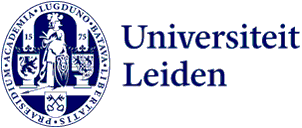
Update Executive Board: 'The Balanced Internationalisation Bill even stricter than we had feared'
The Schoof cabinet has presented its budget. As expected, higher education is facing severe cuts. In the coming period, the Executive Board will regularly look at the consequences of what it deems an irresponsible policy.
The Executive Board is concerned about the effects of the strict language criteria outlined in the Balanced Internationalisation Bill on Leiden University’s degree programmes. ‘Minister Bruin’s parliamentary letter is even stricter than we had feared. This can have major implications for our English-taught bachelor’s programmes’, said President Annetje Ottow on behalf of the Executive Board.
‘Minister of Education, Culture and Science Bruins has four objectives with the Balanced Internationalisation Bill: he wants to reduce the number of English-taught programmes, admit fewer international bachelor’s students, promote Dutch language skills and make savings’, Ottow explains.
To reduce the number of English-taught bachelor’s programmes, Bruins plans to use the TAO (Toets Anderstalig Onderwijs; an evaluation of whether permission will be granted to teach a programme in a language other than Dutch). The TAO will apply to bachelor’s programmes taught in English as well as for Dutch-taught programmes and tracks (specialisations) in which more than a third of the teaching is in English.
The minister has also announced that he will look very critically at the exceptions, such as English-taught programmes that meet labour shortages or are at universities in border regions or what are known as “shrinking regions”.
‘He has already warned that he wants to meet his spending-cut targets, so will not be generous with the criteria for exceptions. He will also further tighten the “internationally unique” and “international positioning” criteria’, Rector Hester Bijl adds.
The Bill will be presented to the House of Representatives this autumn for voting. The minister views the institutions’ previously shared self-management plans as a first step. He now wants to reach agreements on the way in which the institutions will give further shape to this self-management and decreasing the number of international students.
This could be, for example, through joint (cluster) TAO applications and joint decisionmaking on the self-management plans. If that does not succeed, the act may be applied so strictly that hardly any programmes pass the TAO and a long period of uncertaintly breaks out because of the ministry’s time-consuming evaluation process.
‘We are in intensive discussions within the Universities of the Netherlands (UNL)’, says Bijl, adding, ‘The minister is also threatening to crack down in the longer term on the master’s programmes that are largely in English. He will consider this if the universities do not make sufficient haste in converting their bachelor’s programmes to Dutch. Either way, bleak and uncertain times lie ahead and we must face them together. This makes connection, communication and collaboration more essential than ever.
